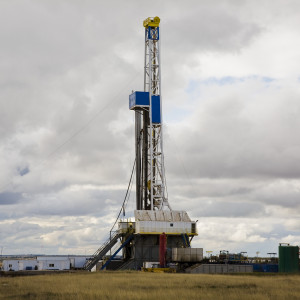With August recess coming to a close, Washington D.C. will once again become politically charged with legislators trickling back into our nation’s Capital to address a series of complex issues that were left unanswered on August 1st. Among these were some fundamental decisions on our U.S. energy policy, especially regarding U.S. exports of natural gas.
During recess, the Wall Street Journal outlined the political stage on this issue describing the increasingly blurred partisan lines on natural gas production and exportation. In the article, Amy Harder examines how more Democrats are getting behind the oil and gas boom as non-traditional producing states are reaping the benefits of resources like natural gas.
The good news: lawmakers still on the fence about expediting export permits for liquefied natural gas (LNG) have received several clear indicators of our nation’s wide ranging support for taking action on our bright natural gas future. In addition to the green light by the Federal Energy Regulatory Commission on construction for the Cameron LNG facility in Louisiana and the Department of Energy’s conditional approval of Oregon LNG’s application for exportation – the DOE also closed its 45-day comment period inviting public input on the issue of selling America’s most abundant energy resource overseas.
The outcome? Comments from leaders in communities throughout the United States asking for an expedited approval process from the DOE for LNG exports.
Over 75 percent of the comments expressed a need for more timely approval of pending liquefied natural gas (LNG) export applications. This underscores the country’s commitment to utilizing our vast energy reserves to create jobs here at home and help foster greater stability in international markets.
Americans are ready to shed our reliance on foreign oil and gas and embrace our new role as a net energy exporter – and leverage our resources, some of the largest in the world, to our advantage.
This year, for the first time in about 20 years, the country produced more energy than it consumed. We surpassed Russia and Saudi Arabia as the world’s largest producer of natural gas, and production is expected to increase by more than 55 percent by 2040, according to the federal government’s Annual Energy Outlook.
The Department of Energy (DOE) procedures have still not yet caught up to the new reality. Under a regulatory structure dating back almost 40 years, the DOE must approve export permits for producers to sell LNG, the shippable form of natural gas, to countries that do not share a Free Trade Agreement with the United States. Since 2011, the agency has conditionally approved eight applications with only three of those applications receiving full permitting. More than two dozen projects still await review, with almost half languishing in the regulatory process for more than a year.
The DOE’s comment period was the first open forum around the issue of LNG exports since a macroeconomic study commissioned in 2012. And while not everyone agreed that the Agency’s proposed changes would speed up the process of approval, the response was clear: Americans expect lawmakers to utilize our energy resources, which in turn will foster continued oil and gas development.
In addition to comments outlining the job growth potential along the energy supply chain – a noteworthy group of lawmakers representing every level of government weighed in. At the national level – Senator Mark Warner of Virginia and Representative Tim Ryan of Ohio both expressed their desire to see these applications approved in a timely manner. At the local level – 12 elected officials including State Senators and mayors of major cities urged the DOE to do everything in its power to support the U.S.’s abundant natural gas supply through exports.
There is an urgency to act. Across the world other countries are actively pursuing and mobilizing their own energy capabilities, many of which face fewer restrictions resulting from bureaucratic logjams. Reports earlier this year found countries such as Australia, Iran and others are eagerly stepping up to meet energy needs in Europe and elsewhere in the absence of U.S. action. Over 60 projects worldwide are contending for such market leadership.
The United States will quickly lose out if we do not keep pace with shifting global dynamics.
The remarkable energy growth witnessed here at home has been driven foremost by private investment; such continued progress will require the same kind of long-term investment. The only way this investment will continue is if the market is allowed to drive production.
As witnessed by the public input submitted to the Department of Energy, Americans have embraced our nation’s upgraded energy status – and looking for leadership to pave a productive path forward. It’s time the Obama Administration and Senate lawmakers to take action to support our energy potential.

